Treasury Rate Movements, March 2021
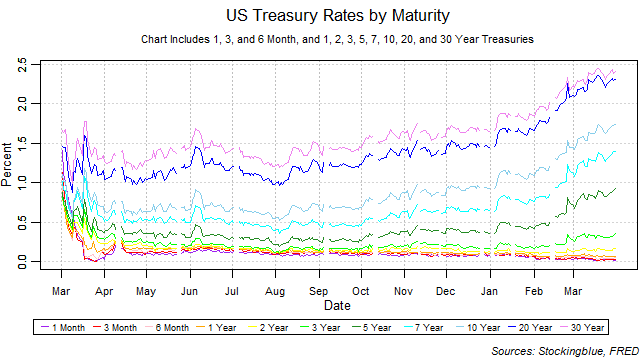
The one-month, three-month, and one-year rates fell, the six-month remained the same, while all other rates rose in March. The yield curve widened from the previous month thus extending its widening streak to four months. The one-month bill did not maintain the lowest rate throughout the month and it shared the lowest rate on multiple occasions. There were no moves upwards on short-term rates thus decreasing the risk of an inversion brought upon by rising short-term rates. Such an inversion, if it were to happen would be a strong indicator for an upcoming recession.
EU Long-Term Interest Rates, January 2021
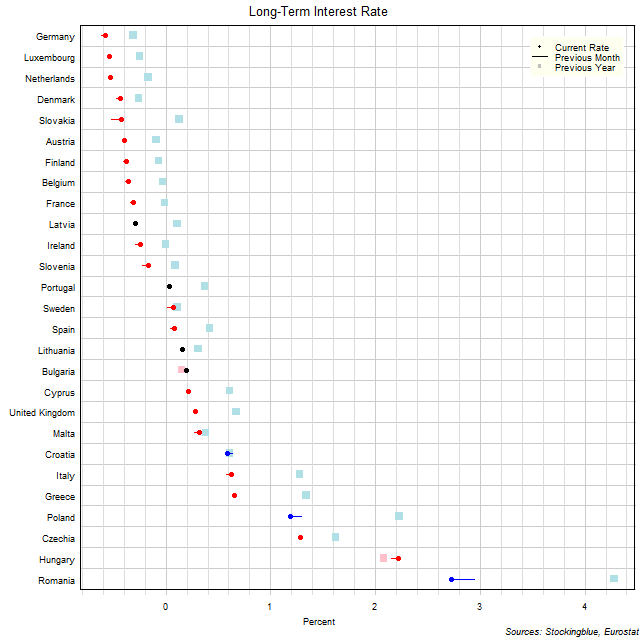
The chart above shows the ten-year interest rate in each EU state as of January 2021, the change from the previous month, and the rate one year prior. Twelve states have a negative interest rate (same as 12 last month and up from eight last year).
Treasury Rate Movements, February 2021
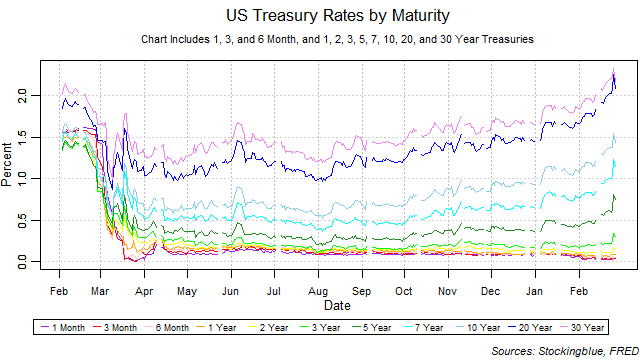
The one-month, three-month, six-month, and one-year rates fell, while all other rates rose in February. The yield curve widened from the previous month thus extending its widening streak to three months. The one-month bill maintained the lowest rate throughout the month although it shared the lowest rate on multiple occasions. There were no moves upwards on short-term rates thus decreasing the risk of an inversion brought upon by rising short-term rates. Such an inversion, if it were to happen would be a strong indicator for an upcoming recession.
EU Long-Term Interest Rates, December 2020
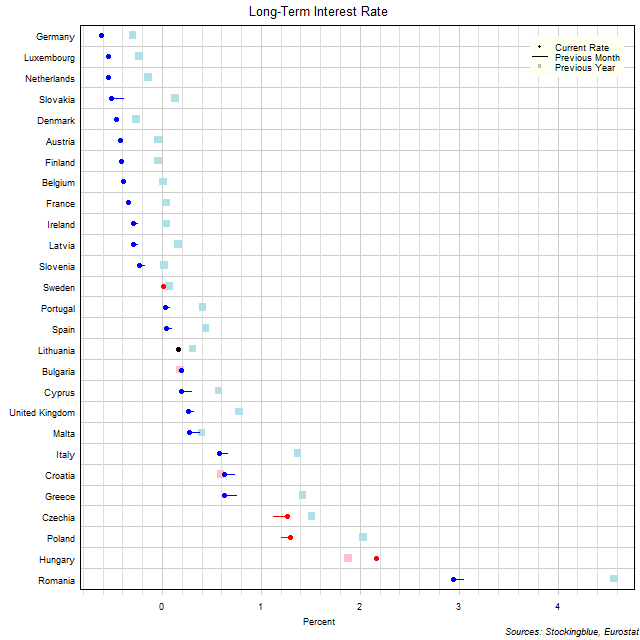
The chart above shows the ten-year interest rate in each EU state as of December 2020, the change from the previous month, and the rate one year prior. Twelve states have a negative interest rate (same as 12 last month and up from six last year).
Treasury Rate Movements, January 2021
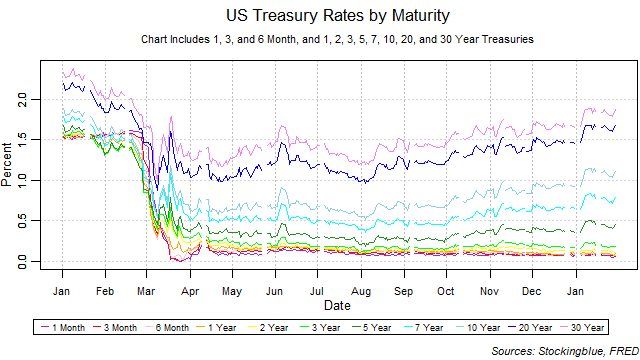
The one-month, three-month, six-month, and two-year rates fell, the one-year rate stayed the same, and all other rates rose in January. The yield curve widened from the previous month thus extending its widening streak to two months. The one-month bill did not maintain the lowest rate throughout the month. There were no moves upwards on short-term rates thus decreasing the risk of an inversion brought upon by rising short-term rates. Such an inversion, if it were to happen would be a strong indicator for an upcoming recession.
EU Long-Term Interest Rates, November 2020
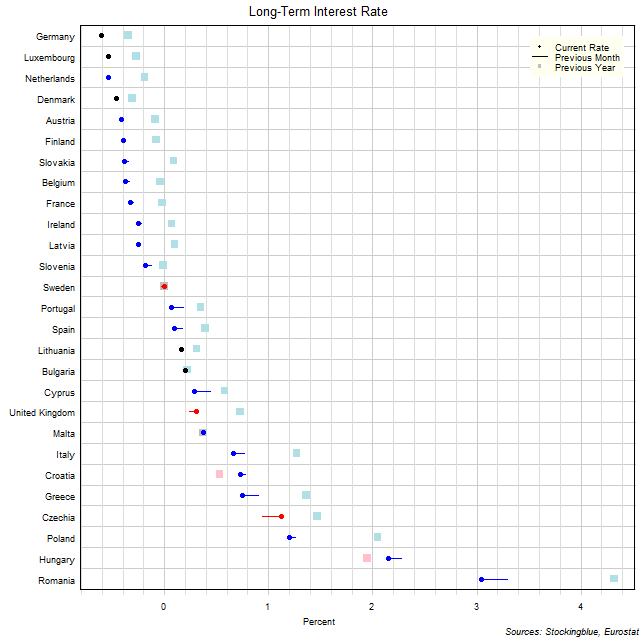
The chart above shows the ten-year interest rate in each EU state as of November 2020, the change from the previous month, and the rate one year prior. Twelve states have a negative interest rate (down from 13 last month and up from nine last year).
A Look Back at Treasuries in 2020
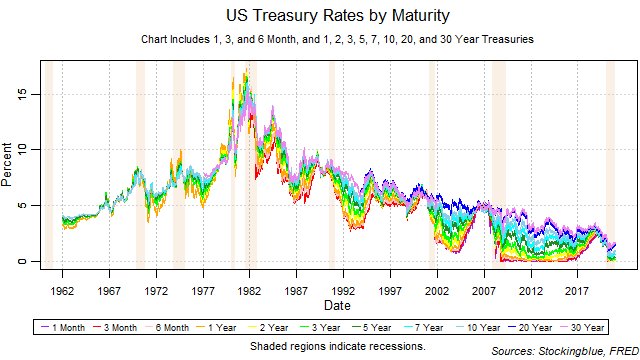
All rates trended downwards for the second year in a row. The yield curve widened over the course of the year. A narrowing from the short-term is a warning sign for an inversion that indicates recession.
Treasury Rate Movements, December 2020
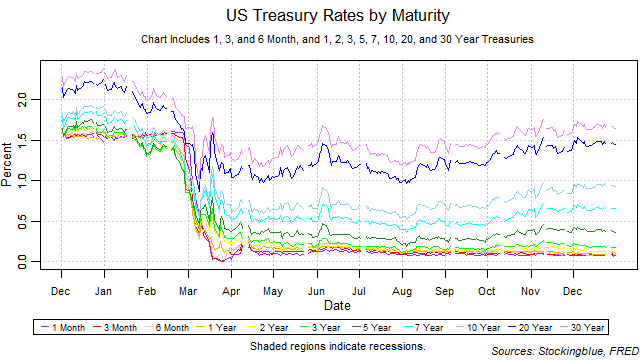
The one-year, two-year, and three-year rates fell, the one-month, six-month, and five-year rates stayed the same, and all other rates rose in December. The yield curve widened from the previous month thus ending its narrowing streak of one month. The one-month bill did not maintain the lowest rate throughout the month. There were no moves upwards on short-term rates thus decreasing the risk of an inversion brought upon by rising short-term rates. Such an inversion, if it were to happen would be a strong indicator for an upcoming recession.
EU Long-Term Interest Rates, October 2020
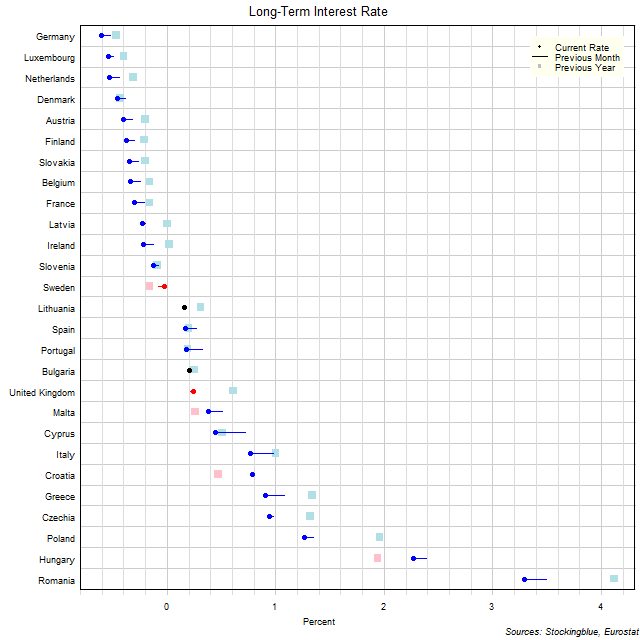
The chart above shows the ten-year interest rate in each EU state as of October 2020, the change from the previous month, and the rate one year prior. Thirteen states have a negative interest rate (same as 13 last month and up from 11 last year).
Treasury Rate Movements, November 2020
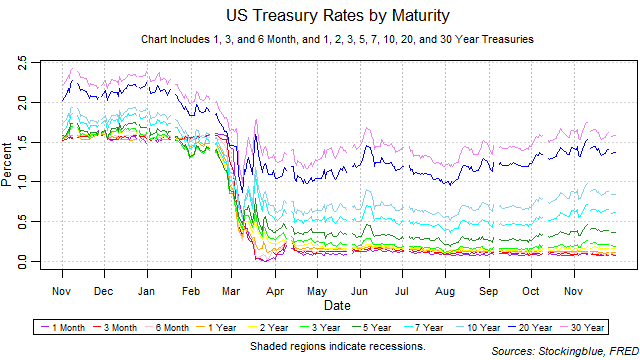
The two-year rate rose, the one-month and three-year rates stayed the same, and all other rates fell in November. The yield curve narrowed from the previous month thus ending its widening streak of one month. The one-month bill did not maintain the lowest rate throughout the month. There were no moves upwards on short-term rates thus decreasing the risk of an inversion brought upon by rising short-term rates. Such an inversion, if it were to happen would be a strong indicator for an upcoming recession.
OlderNewer